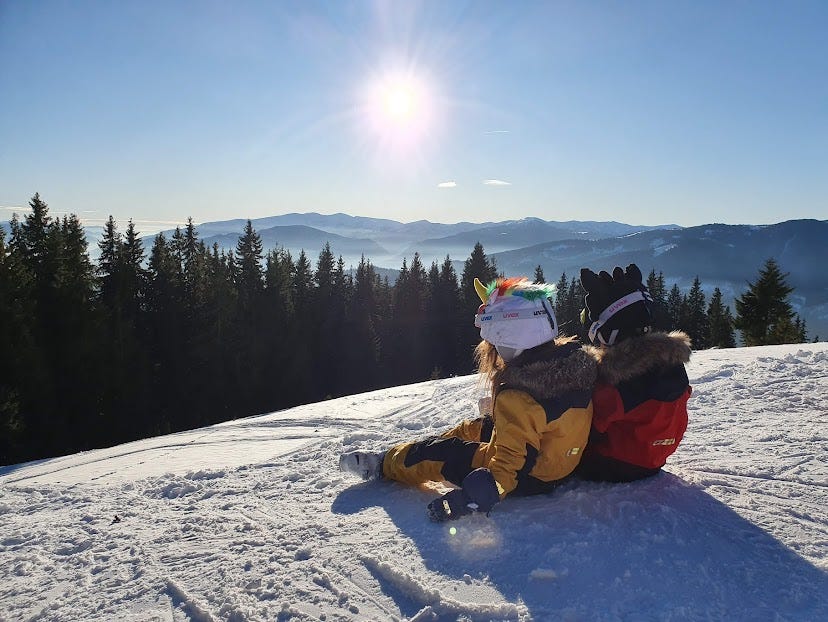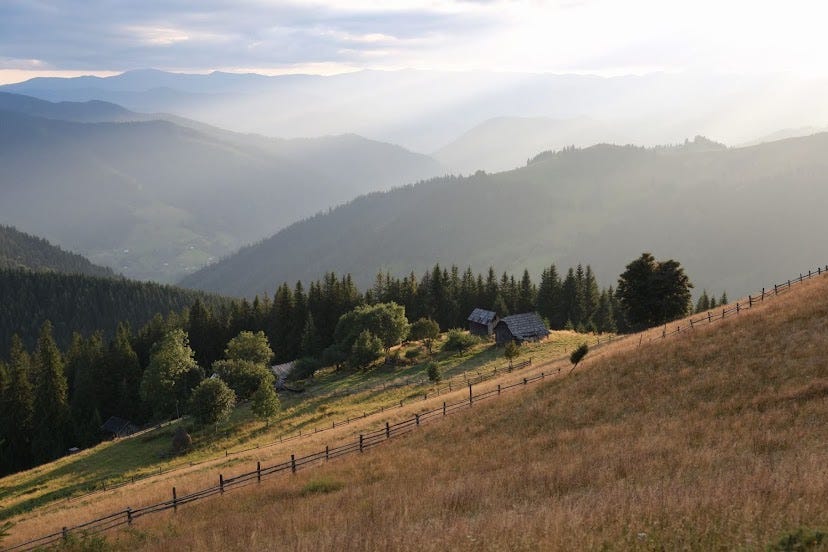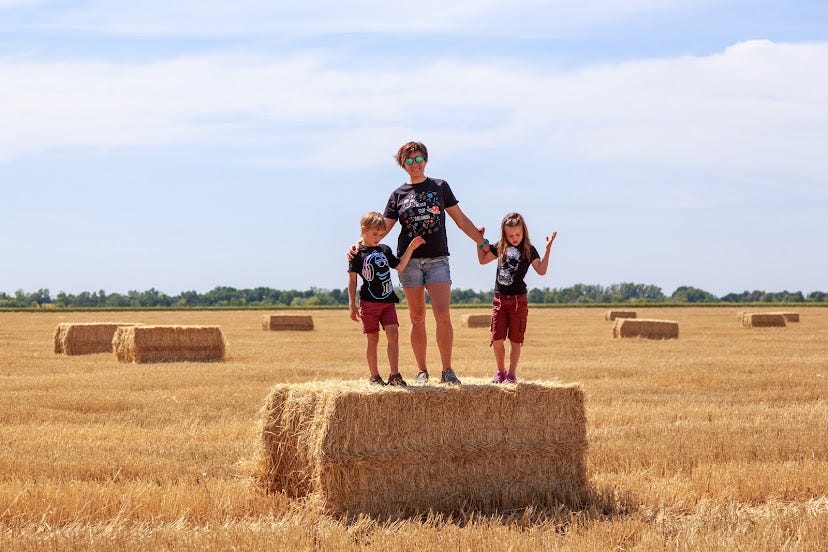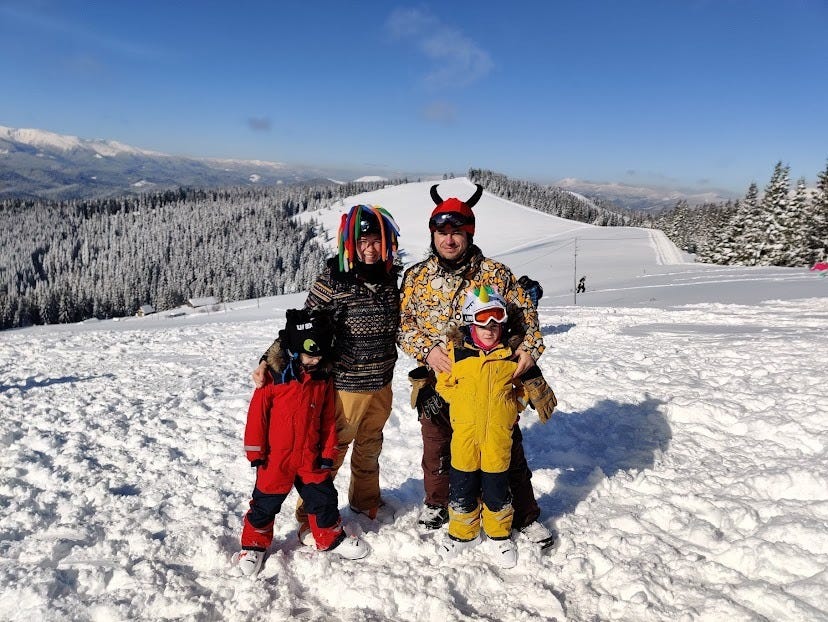Today is a symbol of hope for thousands in Edinburgh
Ukrainian Maryna Ivanova on the meaning of Independence Day for those taking refuge in the Capital
Hi, my name is Maryna, and I am a Ukrainian refugee.
You live your life, working hard, growing as a professional, raising children, planning for the future, and achieving your goals—and then, suddenly, at the age of forty-five, you find yourself saying these words.
More than two years ago, I came to Edinburgh with my two young children, after the Russian invasion forced us to abandon our lives in my home city of Kharkiv.
No one is ever prepared for such a turn in their life. It’s simply impossible to be ready for something like this. War? In the 21st century? In Europe? A real war, like in the movies, but with bombs falling not on cardboard sets, but on your home, and missiles tearing apart not actors, but your friends.
I asked my current colleagues and neighbours on my quiet street in Edinburgh: What do you know about the war, about why it started, and about how Ukraine is living now - a country that is bombed by the Russians every single night, where in most cities electricity is supplied to homes for only a few hours a day, and where advertisements for private schools highlight the fact they have a cozy, well-lit, spacious bomb shelter?
And here’s what I realized: Despite the incredible support that Scots have shown in helping Ukraine in our fight against evil (I honestly believe no other country does as much for our army and for our refugees), very few people truly understand what led to this war and why victory is so critically important - not just for Ukraine, but for the entire world.
The best opportunity to talk about this, I believe, is Ukraine's Independence Day.
So…
A millennium of conquering neighbours
Once upon a time, in a land far, far away, there existed a kingdom named Ukraine.
(To be more precise, calling this land a kingdom would be incorrect, because it was inhabited by such proud and freedom-loving people that they never knew kings or slaves.)
The magical lands of this country were full of wonders: fertile fields in the north, a warm sea in the south, snowy mountains in the west, and mineral-rich caves in the east. 'What luck,' an ecologist might exclaim. 'What a nightmare,' a historian would facepalm.
And they would be right: in over 1,100 years of this state's history, almost every neighbor attempted to conquer and enslave its people. And some, such as the armies of the Golden Horde or the Ottoman Empire, even waltzed all the way here from afar to this wondrous land, intending to exploit its forests and fields.
It would be nice to say that 'they failed,' but unfortunately, that was not the case. The magnificent country found itself under the yoke of conquerors more times than it deserved such misfortune, but always, always its strong and courageous Cossack warriors fought valiantly for freedom.
And the last to try to subjugate the proud Ukrainians were Soviet Russia. For nearly a hundred years, the Iron Curtain closed around Ukraine, which became one of the fifteen republics of the USSR, a link in the chains of the Communist Party's oppression.
Life under the Soviets
Communism's grand idea was for everyone to be equal, with no poor or unhappy people. But in the USSR, they took it a step further—by ensuring there were no rich or happy people either.
Let me describe what life was like for an ordinary Ukrainian behind the Iron Curtain. I lived it, so I know.
There was nothing in the stores. "Nothing" literally meant nothing.
There was a joke at the time: for a store to function properly, it needed only two employees. One would stand at the entrance and tell customers, "Why are you going in there? There's nothing," while the other would stand at the exit and say, "Well, did you see?"
In the USSR, free trade didn’t exist, private production and farms were banned, and Moscow decided what and how much to produce. So, for example, a factory might produce millions of whistling teapots but not a single frying pan. Since no one bought the teapots, they were forced onto customers as a "bonus." If you needed boots, a football, and a new faucet, and if you were lucky enough to find them in stock, you would leave the store with boots, a football, a faucet - and three whistling teapots. But such luck was rare; more often, you left empty-handed and tried to find what you needed at exorbitant prices on the black market. It’s hard for Europeans to imagine buying a football secretly produced in an underground workshop on the black market, with families having to save up just to afford it.
There was not enough food. Occasionally, ration cards were introduced for sugar, butter, and meat. When rare, coveted items like sausage or cheese were stocked in stores (once or twice a month), people would line up for hours, often with the whole family, since items were distributed one kilogram at a time for each person.
There was a shortage of clothes, appliances, and furniture. Moreover, buying furniture was almost pointless, as finding a place to put it was nearly impossible. Buying a home was out of the question; you could only earn an apartment from government by working at the same job for 20-25 years. You couldn’t even choose your place of employment: after university, young specialists were assigned wherever the system decided.
Note that I’m talking about the 1980s, not the early 20th century or the postwar period. How many of your acquaintances back then had to wash clothes by hand (including bed linens, the nightmare of every homemaker) because the wait to buy a washing machine stretched on for years? To purchase a major appliance - often of poor quality - you had to join a special city-wide waiting list and regularly check in at the store to confirm your interest in buying a washing machine, refrigerator, television, or oven. When the coveted item finally arrived, perhaps just a few times a year, you had to queue up at dawn, with your number marked in permanent ink on your hand. Step away, and you’d lose your place, resigning yourself to washing by hand for another year. As for dishwashers, dryers, and air conditioners, we didn’t even know they existed.
This was a life that felt more like survival, although in the later years of the USSR it was incomparable to the man-made Holodomor of the 1930s (a devastating famine deliberately caused by Soviet policies) that Russia inflicted on Ukraine. The country was steadily marching towards a precipice, and it seemed there was no way out of this trap.
Composers, scientists and dissidents
And what happened to those who disagreed with this way of life? They faced elimination, ranging from life imprisonment to execution.
It’s nearly impossible to comprehend how many lives were shattered, discoveries never made, books left unwritten, and how much the country's progress was set back during the Soviet era. And this is not just about Ukraine.
Can you imagine Christmas without 'Carol of the Bells'? Meanwhile, the composer of this carol, Ukrainian Mykola Leontovych, was killed one winter morning by Soviet secret police, the precursor to the KGB.
Can you imagine space exploration without the contributions of Ukrainian Sergei Korolev? This pioneering rocket scientist, who was instrumental in the space race, was imprisoned, tortured, and forced to work on rocket designs while in prison under Stalin's regime.
Can you imagine the world of aviation without the innovations of Ukrainian Igor Sikorsky? This visionary aeronautical engineer, who created the world’s first successful production helicopter, was forced to emigrate due to repression and political persecution in order to continue his groundbreaking work.
This is the bleak life that Russia brought to a cozy, rich, and intelligent country.
But Ukrainians never stopped fighting for their freedom and the future of their children. On August 24, 1991, during the August Coup and the military upheaval, the Verkhovna Rada of Ukraine (the Supreme Council, which is Ukraine's parliament) declared its independence from the Soviet Union.
After the collapse of the Soviet Union, Russia and Ukraine followed very different paths. Ukraine, with its European values and hardworking people, began making rapid strides toward progress and integration with the West. In contrast, Russia, despite initial attempts to develop along similar lines, quickly reverted to its familiar autocratic tendencies.
A blossoming country
Over these 33 years of independence, Ukraine has truly blossomed. The country saw a surge in new businesses and private farms, leading to a thriving economy. Factories and production companies sprang up, strengthening Ukraine's global presence. Today, Ukraine is a leading exporter of grain and machinery, making its mark on international markets.
Tourism in Ukraine has taken off, with people flocking to explore its stunning landscapes and historic sites. For instance, Bukovel has become one of Eastern Europe’s largest ski resorts. This fantastic Carpathian winter wonderland offers a diverse range of skiing experiences, which is particularly impressive given its affordable prices.
Cities are buzzing with new, huge shopping centers where you can find everything from the latest fashion to unique local products.
Ukrainian cuisine is hearty and unique, winning hearts from the very first spoonful of borscht. Once someone tries borscht with ribs and garlic pampushki, they can’t imagine life without it!
The private postal company Nova Poshta has become a symbol of speed, accuracy, and convenience. Can you imagine a postal service with branches located on every convenient corner, operating without breaks or weekends, delivering any goods across the country within a day, and offering these services at prices that are impressively low by European standards?
What’s especially impressive is how Nova Poshta operates in tandem with Rozetka, the Ukrainian equivalent of Amazon. The speed and convenience of shopping, including on the secondary market, are truly remarkable.
The healthcare system in Ukraine is also impressive, with top-notch private medical services. You won’t have to wait months for an MRI - just work hard enough to afford it. And if there’s one thing Ukrainians are experts at, it’s working hard!
In a way, Ukraine is rediscovering its magical qualities, returning to the enchanting country it once was before the Soviet era.
But, we all know the treacherous neighbor still dreams of seizing and subjugating Ukraine, and perhaps even all of Europe. That’s why August 24th, Independence Day, for Ukrainians, is more than a celebration; it’s a symbol of proud struggle and hope for the future.
If you liked this, you may also be interested in these previous Inquirer long reads relating to Ukraine:
(100) 'I love Edinburgh, I love Scotland, but I didn't plan to come here' (edinburghinquirer.co.uk)
(100) Ordinary people, extraordinary deeds - by David Forsyth (edinburghinquirer.co.uk)






